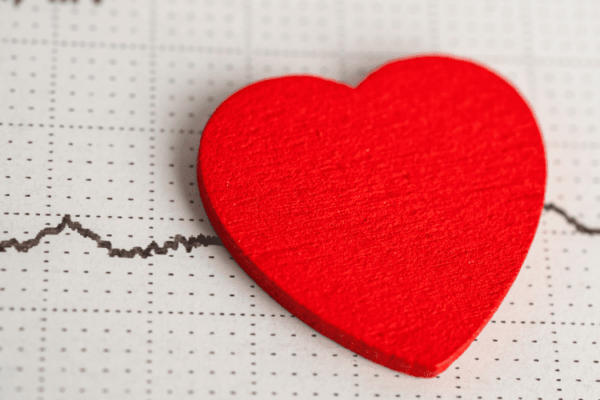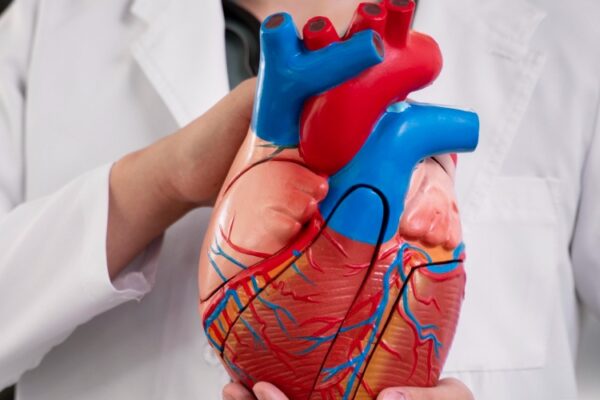
02 Jul Erectile Dysfunction: This is not the END
Erectile Dysfunction: This is not the END
By Island Hospital | Jul 2, 2020 4:12:27 PM
Every time the word “erectile dysfunction” is mentioned, you are most likely to be greeted with nervous laughter, or awkward silence. These words are enough to make any man nervous as it is a highly personal problem that many men find embarrassing or shameful to talk about. Men who fail to seek treatment for erectile dysfunction often feel as though they are alone in their suffering but nothing could be further from the truth.
It is not a topic most men want to discuss, yet an open conversation is the first step in finding a solution. Many men feel embarrassed about erectile dysfunction (ED), often feeling something is wrong with them, but it actually affects around 70% of men at some point in their lives. It affects men of all ages but becomes increasingly prevalent with age. Men aren’t the only ones who suffer with erectile dysfunction. Spouses and partners experience their own emotional challenges. They often feel rejected or blame themselves for the toll erectile dysfunction takes on their relationship. These words are enough to make any man nervous. It is a highly personal problem that many men find embarrassing or shameful to talk about.
Millions of men struggle with it but shockingly few ever seek treatment. It is helpful to know that ED is both common and treatable – even in Penang, Malaysia. The sooner you learn about the treatment alternative for ED, the sooner you can go back to sharing and enjoying intimate moments with your significant other.
There are many different body parts that play an essential role for a man to get and maintain an erection during sexual intercourse.
Erectile dysfunction (ED) is a condition in which you are unable to get or keep an erection firm enough for satisfactory sexual intercourse. Erectile dysfunction can be a short-term or long-term problem. The problem is reported by 1 in 5 men, and that number gets bigger with age.
You have erectile dysfunction when you:
- can get an erection sometimes, but not every time you want to have sex.
- can get an erection, but it does not last long enough for fulfilling or satisfactory sex.
- are unable to get an erection at any time.
It is not easy to talk about erectile dysfunction, but erectile dysfunction is more common than you think. Half of all men over age 40 have it, as do many younger men. There’s a good chance that guy sitting next to you might have ED, or that the woman across the room is wondering how to help her partner find answers. Erectile dysfunction often has a negative effect on sex life, and can cause additional stress, depression, and low self-esteem to both men and women
The causes of erectile dysfunction can be psychological or physical.
1. Psychological factors –If you’re older, there’s probably a physical reason for your ED. But the causes can be in your head, too. Stress, depression, low self-esteem, and performance anxiety can short-circuit the process that leads to erection difficulties. A man’s sexual drive or performance can also be affected by stress such as problems at work, relationship difficulties or financial worries. Psychiatric conditions and feeling depressed or anxious about poor sexual performance can also result in a failed erection.
2. Age – Sexual dysfunction and ED become more common as you get older. Only about 5% of men age 40 have it. But the number rises to 15% of men age 70. This doesn’t mean growing older is the end of your sex life. Doctors can treat ED no matter your age. Age isn’t the only cause.
3. Diabetes – Men who have diabetes are two to three times more likely to develop ED than men who do not have diabetes. Chronically high blood sugar levels can result in nerve damage that affects your body’s ability to translate pleasurable sexual stimulation into an erection. Diabetes can also lead to issues with circulation, which reduces blood flow to the penis and makes it more difficult to keep an erection that is hard enough for intercourse.
4. Surgery – including treatments for prostate cancer, bladder cancer, or Benign Prostatic Hyperplasia (BPH), can sometimes damage nerves and blood vessels near the penis. If the nerve damage is permanent, you’ll need treatment to get an erection. But sometimes surgery causes temporary ED that gets better on its own after 6 to 18 months.
5. Interference with nerve function – Spinal cord trauma, multiple sclerosis, Parkinson’s disease, Alzheimer’s disease may cause interference to the brain to communicate sexual desire to the reproductive system.
6. Metabolic problems interfering with blood vessel function –Did you know that erectile dysfunction precedes coronary artery disease in almost 70 percent of cases? The arteries in the penis are smaller than those that cause heart disease symptoms, which means they are likely to be affected by blockages sooner. When the arteries in the penis are blocked, keeping an erection will be difficult regardless of your level of arousal.
7. Hormone problem – In men, the hormone known as testosterone plays many roles. One of its roles is to increase sexual desire and help you to have erections. Low testosterone levels can result in erectile dysfunction. Testosterone affects both the ability and capability of a man to produce an erection. Diminished testosterone reduces libido or sex drive and in turn can affect the ability to develop and sustain an erection.
8. Interference by high consumption of alcohol – Alcohol is a depressant, and using it heavily can dampen mood, decrease sexual desire, and make it difficult for a man to achieve erections or reach an orgasm while under the influence.
9. Illegal drugs – Using illegal drugs may prevent you from getting or keeping an erection. For instance, some illegal drugs may prevent you from becoming aroused or feeling other sensations.
10. Smoking – can damage your blood vessels, and ED is often a result of poor arterial blood supply to the penis.
11. Weight issues – Losing weight may help reduce inflammation, increase testosterone levels, and increase self-esteem, all of which may help prevent ED. If you are at a healthy weight for your height, maintain that weight through healthy eating and physical activity.
12. Endocrine problems – Thyroid disease, Hypogonadism (a condition where the testes are not able to make enough testosterone [androgen deficiency] and/or sperm [spermatogenesis]
13. Unknown – in a few cases, neither physical nor psychological causes are obvious. Vascular disease is likely to be the underlying cause in these cases.
14. Taking certain medications – ED may be a side effect of medication, including certain blood pressure drugs and antidepressants. While some drugs may treat a disease or condition, they can also affect a men’s hormones, nerves, or blood circulation, resulting in ED or increase the risk of ED. Never stop taking any medicine before you discuss it with your doctor.
The symptoms of erectile dysfunction include
- difficulty achieving an erection.
- trouble maintaining an erection.
- reduced interest in sex.
If you can’t get or keep an erection that lasts long enough or is rigid enough for sex, you have erectile dysfunction. While occasional erectile dysfunction is normal, ongoing erectile dysfunction can be a symptom of a serious physical illness. It is important that your doctor fully investigates any ongoing problems to check for any underlying medical cause that may also need treatment. This may include heart and blood vessel diseases, diabetes, high blood pressure or high cholesterol.
Tests can determine if the blood flow to the penis is affected. Blood tests can also help to determine if hormone problems, such as low testosterone, are causing the erectile dysfunction.
Once you find out whether your erectile dysfunction has a physical or psychological cause, you can get the proper course of treatment.
Finding the cause of your ED will help direct your treatment options. To diagnose ED, the specialist doctor will ask about your symptoms and medical history.
- Physical exams – a complete physical exam to look for signs like poor circulation or nerve trouble and might include careful examination of your penis and testicles and checking your nerves for sensation.
- Blood tests – A sample of your blood might be sent to the lab. Blood cell counts, blood sugar levels, cholesterol levels, and testosterone and other male hormones can reveal medical conditions that play a role in ED.
- Psychological exam – Your doctor might ask questions to screen for depression and other possible psychological causes of erectile dysfunction.
Since no two men are alike, the best ED treatment plan will depend on what’s causing your problem.
- Oral medications such as Viagra and Cialis, are the most common ED treatment, but they don’t work for everyone. Some men find that they cause bothersome headaches or persistent stomach troubles. Some have serious side effects such as chest pain and vision or hearing changes. Others don’t respond to the medication at all, while some don’t like having to wait for the pill to take effect.
- When pills do not work, penile pump may be used. Also called vacuum constriction devices, penile pumps are devices that are placed over the penis to draw blood into the shaft. Once the vacuum creates an erection, the retaining band is slid down to the lower end of the penis and the pump is removed. You can leave the band on for up to 30 minutes. Pumps can be either hand-operated or run on batteries. To avoid accidental injury to the penis, any non-prescription penile pump should contain a “quick release” feature that allows for a rapid release of the vacuum.
- When other treatments have not helped, a penis implants offers hope. Penile implants are custom-fitted devices that are surgically implanted to allow you to obtain an erection when desired. When a man is sexually aroused, all he has to do is squeeze the pump between the thumb and index finger, and an erection occurs. Penis implants are undetectable to the naked eye, so no one will know you have one unless you tell them. It is totally natural, controlled and spontaneous erection that will restore your confidence, relationships and pleasure.
- Low-intensity shockwave therapy (LISWT) is a safe treatment for men with erectile dysfunction and might work to improve, or even cure, ED in some patients. In some men with declining erections, particularly if this is due to narrowed blood vessels (vascular disease), the use of low-energy shock waves to the penis may improve the strength of erections. In this non-invasive treatment, acoustic or shock waves, which are pulsed sound waves, are delivered by a hand-held device which is applied to the skin of the penis in several areas
Many times, men will not get into sexual situations because they are embarrassed. In turn, their partner may feel rejected or inadequate. Erectile dysfunction may be an unpleasant condition that no one really wants to talk about; failing to acknowledge it will not make the problem go away. Untreated ED can damage your self–confidence, causing a lot of stress— even depression and anxiety. Many men with ED feel like their lives are out of control. The good news is there’s hope. Take back control. If you have experienced erectile issues or you have some of the risk factors mentioned above, make an appointment today.
The sooner you get back on track with ED treatment, the sooner you can go back to sharing and enjoying intimate moments with your significant other. You may be surprised to learn that some of the simplest changes might have the biggest benefits.
At Island Hospital, our specialist doctors’ aim for ED is simple – hard made easy.







